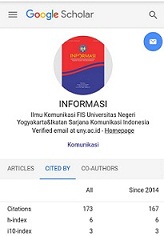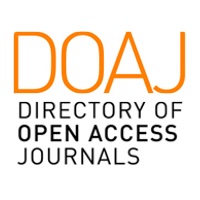Kebijakan Peraturan Daerah Berbasis Politik Rekognisi dan Resolusi Konflik Etnik
DOI:
https://doi.org/10.21831/informasi.v2i2.4449Abstract
Indonesia, as a multicultural country, has a high potential of conflicts among forming elements of its multiculturalism. To minimize potential of conflicts, it is necessary to construct space of co-existence for several identities. State, as an all-encompassing and all-embracing institution should be able to present policies that provide the space. Policy interventions can be taken in preventive, curative, and preservative domains.
The problem is that in Indonesia centralistic era many state policies were being monocultural, containing misrecognition, even authoritarian. The situation adds conflict potential. The combination between monocultural policy and State failure in guarding policy becomes key variable in several multiethnic conflict in various regions of Indonesia.
In context of centralized politics, East Kotawaringin (Kotim) proved a victorious success in ethnic conflict resolution. Sampit conflict between Dayak and Madurese in 2001 which is known as the most cruel and bloody conflict and claimed a huge amount of victims cleanses Madurese Ethnic from Sampit due to be killed, fled into the forests, or refuge outside Sampit even Central Borneo. Yet the conflict was resolved without leaving some significant problems. Unlike conflict resolutions in other regions e.g. West Borneo dan Ambon where conflict resolutions were intervened by Jakarta, Kotim succeeded in enactment of Local Regulation No 5 Year 2004 on Handling of impacted inhabitants of Ethnic Conflict. In the mentioned Local Regulation the rights of each conflicting party are recognized. Political recognition must be realized or included in a public policy (government or state), so that each party obtain legal certainty. In preparing a public policy concerning inter-group relations in a multicultural society required the participation of each group, so the product of public policy can be understood and accepted by all groups. Implementation of the Regulation involved maximum participation of citizens, community leaders and members of Local Government. The role of Central Government is very minimalist. While conflict resolution in many other regions leaves some serious problems"”e.g. lack of formal return for victims in West Borneo ethnic conflict, or fragmentation of areas which homogenous identity of religion post Ambon Conflict"”Kotim is able to preserve peaceful atmosphere among heterogenous identity and multicultural community.
Key words: local regulation, conflict resolution, political recognitionDownloads
Published
How to Cite
Issue
Section
Citation Check
License
Authors who publish with this journal agree to the following terms:- Authors retain copyright and grant the journal right of first publication with the work simultaneously licensed under a Creative Commons Attribution License that allows others to share the work with an acknowledgement of the work's authorship and initial publication in this journal.
- Authors are able to enter into separate, additional contractual arrangements for the non-exclusive distribution of the journal's published version of the work (e.g., post it to an institutional repository or publish it in a book), with an acknowledgement of its initial publication in this journal.
- Authors are permitted and encouraged to post their work online (e.g., in institutional repositories or on their website) prior to and during the submission process, as it can lead to productive exchanges, as well as earlier and greater citation of published work (See The Effect of Open Access).
























